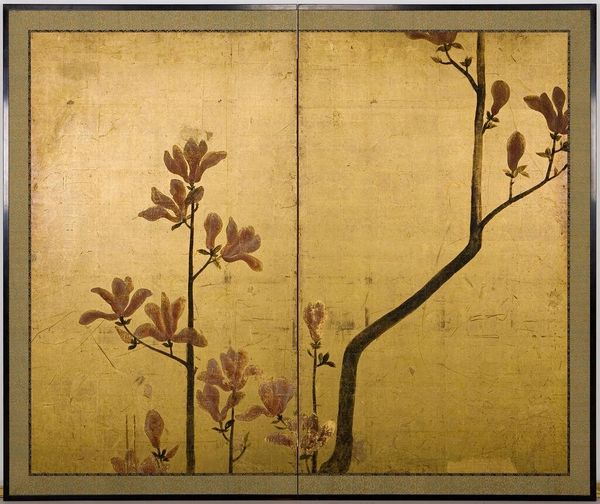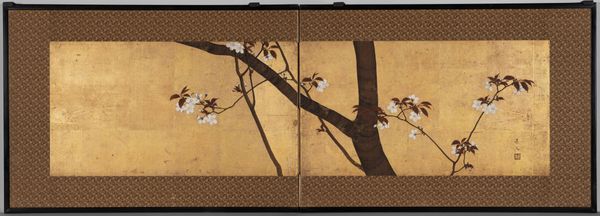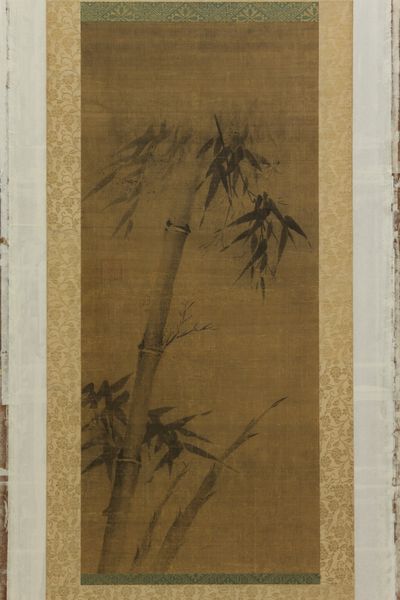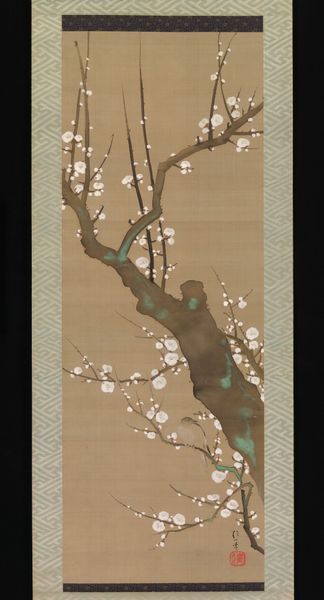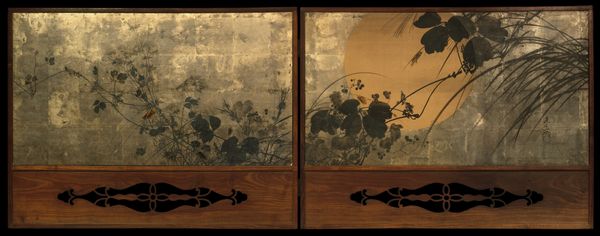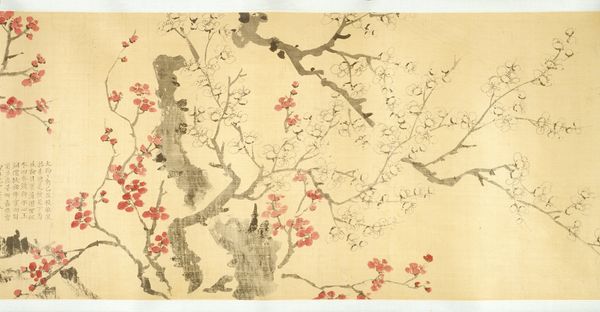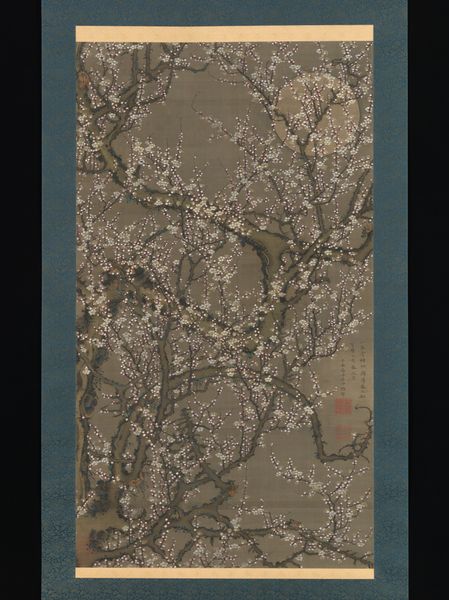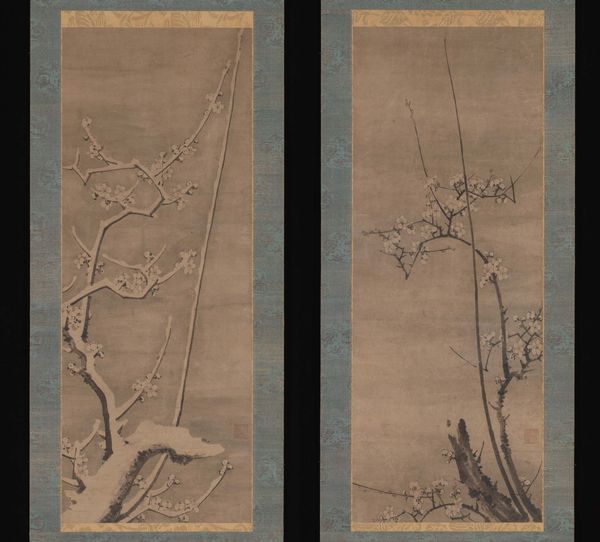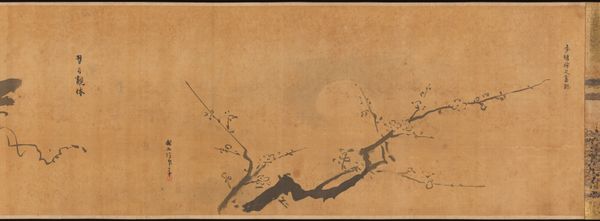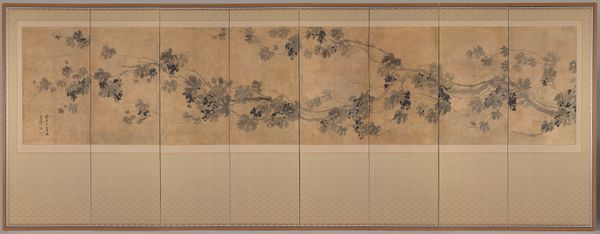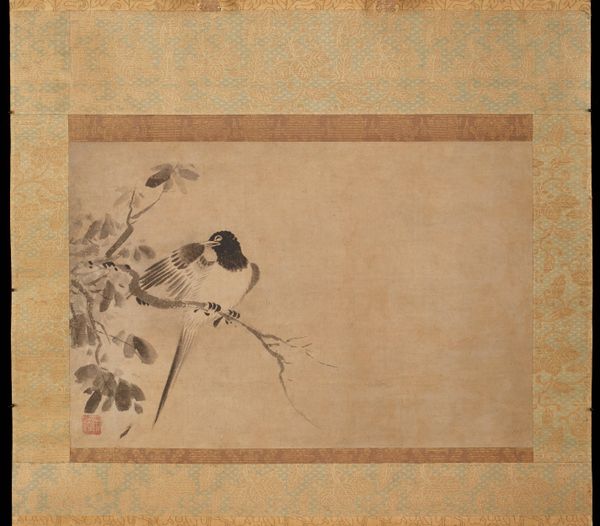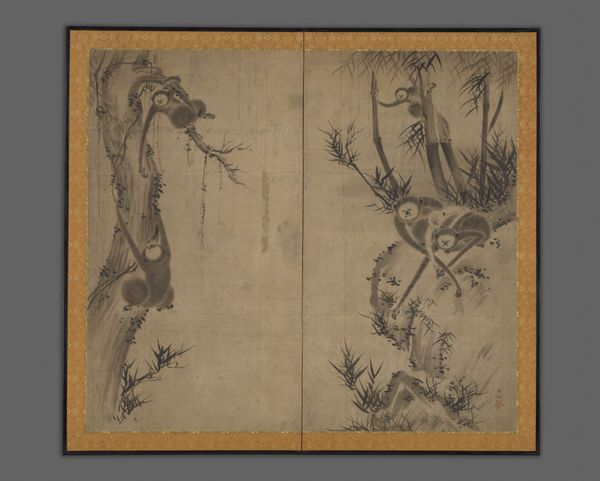
drawing, paper, ink, wood
#
drawing
#
asian-art
#
landscape
#
paper
#
ink
#
coloured pencil
#
abstraction
#
line
#
wood
Dimensions: H. (incl. stand) 57 in. (144.8 cm)
Copyright: Public Domain
Curator: "Plum Blossoms," created between 1813 and 1833, is an ink and colored pencil drawing on paper by Matsumura Keibun. It resides here with us at the Metropolitan Museum of Art. What strikes you initially about this work? Editor: It feels remarkably… zen, almost minimalist. That stark, almost blinding, golden background really makes the stark branches sing. It’s simple but so visually arresting! Does this piece reference the traditional role of Plum Blossoms in art? Curator: Absolutely. The plum blossom, particularly in East Asian art, carries immense symbolic weight. It's one of the "Four Gentlemen" in Chinese art, symbolizing perseverance, hope, and the arrival of spring. The visual language conveys a profound emotional, cultural and psychological narrative. Editor: Oh, right! Symbolizing hope and resilience even amongst the bleakness of Winter, which, come to think of it, matches that slightly austere and, dare I say, sad, aesthetic. Am I off in interpreting its overall mood that way? Curator: Not at all. It evokes a sense of contemplative solitude. This connects with the cultural memory ingrained in its symbols, inviting the viewer to reflect on the cyclical nature of life and the endurance of beauty. Editor: I see that delicate line work and those soft hues... almost feel a little tentative? The very Japanese aesthetic somehow reminds me of poetry--specifically haiku. Curator: Indeed. The composition and use of line exemplify an artistic sensibility rooted in centuries of aesthetic and philosophical tradition, offering a quiet and understated power that lingers in the mind long after you’ve walked away. It captures the essence of resilience through nature's artistry. Editor: Right! And I realize how that resilience translates as hope too.
Comments
No comments
Be the first to comment and join the conversation on the ultimate creative platform.
